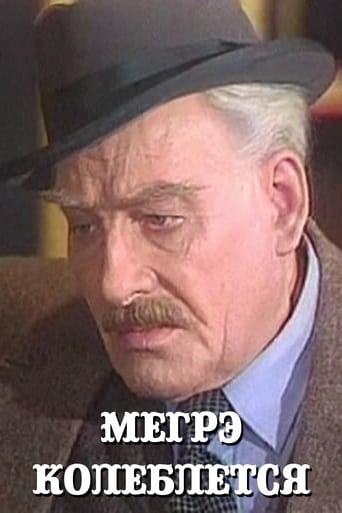"Мегрэ колеблется" (1982), produced by the Main Editorial Board of Literary and Dramatic Programs of Central Television USSR, is a compelling adaptation of Georges Simenon's novel, showcasing the intricacies of human nature through the lens of Soviet television. The film follows the iconic detective Jules Maigret as he grapples with a perplexing case that tests his intuition and moral compass. Set against the backdrop of a meticulously recreated 1950s Paris, the production captures the essence of Simenon's atmospheric storytelling, blending suspense with a deep psychological exploration of its characters. The Soviet adaptation stands out for its faithful portrayal of Maigret, portrayed with nuanced depth by the actor Vladimir Samoilov. His performance captures the detective's contemplative nature and his internal struggle as he navigates the murky waters of the case. The film's pacing, deliberate and thoughtful, mirrors Maigret's own methodical approach to solving crimes, allowing viewers to immerse themselves in the detective's world and thought processes. One of the film's strengths lies in its ability to weave social commentary into the narrative, a hallmark of Soviet cinema during this period. Through Maigret's investigation, the film subtly critiques societal norms and the pressures that drive individuals to commit crimes, reflecting broader themes relevant to both the Soviet audience and universal human experiences. The adaptation's success in maintaining the integrity of Simenon's work while infusing it with a distinctly Soviet perspective is a testament to the skill of the filmmakers. Overall, "Мегрэ колеблется" is a remarkable piece of Soviet television that not only entertains but also invites viewers to reflect on the complexities of justice and morality. Its enduring appeal lies in the timeless nature of its storytelling and the universal themes it explores, making it a significant contribution to the legacy of both Georges Simenon's Maigret series and Soviet cinematic art.
年份1983
预算10000$
类型悬疑犯罪电视电影
制作国家Soviet Union

